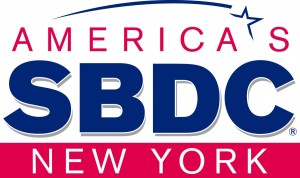Accelerating the development of biomedical technologies
The Center for Biotechnology at Stony Brook University, on behalf of the Long Island Bioscience Hub (LIBH), has announced the recipients of the second round of funded projects under the Hub’s technology development and commercialization initiative. Funding for ten projects totaling $600,000 was awarded to applicants from the Hub’s partner institutions. Partner institutions include Stony Brook University, Cold Spring Harbor Laboratory, Brookhaven National Laboratory, and the Feinstein Institute at Northwell Health Systems.
The technology development awards made available by the LIBH are specifically aimed at growing a pipeline of commercially promising biomedical technologies that can be out-licensed for further development or serve as the foundation for new company formations in the region. There are two tiers of funding, each with the goal of accelerating technology development to reach a critical development inflection point. Feasibility awards ($50,000) are designed to rapidly test the feasibility of new ideas in a “fail-fast-or-proceed” format, or to add value to existing intellectual property leading to new market applications. Proof-of-Concept Awards ($100,000) provide targeted, milestone driven support for further development, testing, and analysis of existing intellectual property.
A wide range of disciplines are represented in the project awards this cycle including biomedical engineering, chemistry, biochemistry, psychiatry, molecular genetics and microbiology, and pathology and dermatology. Eight Feasibility awards and two Proof of Concepts awards have been funded this cycle. The recipients of this round of awards are:
Feasibility Awards
Therapeutic for Clostridium difficile antibiotic-associated diarrheal disease – Dr. James Bliska
Device for rapid, simple and highly parallel single-cell processing – Dr. Eric Brouzes
Developing a small molecule drug to treat systemic C. albicans infections – Dr. Nick Carpino
Next generation hedgehog inhibitor for invasive basal cell carcinoma – Dr. Jiang Chen
A Novel Strategy for Recombinant AAV Vector Production for Gene Therapy – Dr. Patrick Hearing
A tandem-integration-based multi-barcode method for high-throughput combinatorial screening – Dr. Sasha Levy
Novel CAIX Targeted Combination Inhibitor/PET tracer to treat patients with solid tumors – Dr. Peter Smith-Jones
Substrate-Assisted Tethered Inhibitors of LigA to Treat MDR Gonorrhea – Dr. Peter Tonge
Proof of Concept Awards
fMRI Dynamic Phantom for Improved Detection of Resting-State Brain Networks – Dr. Lilianne Mujica-Parodi
Development of SMASH technology as a next-gen sequencing diagnostic for congenital heart disease – Dr. Michael Ronemus
“The announcement of this second cycle of awards from the Long Island Bioscience Hub under the NIH-REACH program is exemplary of the increasing commercially relevant research taking place in the region” said Clinton T. Rubin, Ph.D., Distinguished Professor, Chair, Department of Biomedical Engineering, and Director, Center for Biotechnology. “Coupled with the recent expansion of the Hub to include the Feinstein Institute and the announcement of our third “request for proposals,” the LIBH is steadily working toward its goal of accelerating the translation of these technologies from the bench to the bed side.”
The main goal of the LIBH is to foster the development of therapeutics, preventatives, diagnostics, devices and research tools emerging from LIBH partner institutions that address diseases within the NIH’s mission.
Download a PDF of the press release here.
 Rgenix, a cancer therapeutics company developing first-in-class drugs targeting novel cancer pathways, announced a $33 million Series B financing led by Novo A/S and Sofinnova Partners, with participation from existing investors including Partnership Fund for New York City, Alexandria Venture Investments, and Conegliano Ventures LP. The financing will support clinical development of Rgenix’s lead drug candidates, RGX-104 and RGX-202, as well as further development of its therapeutics pipeline.
Rgenix, a cancer therapeutics company developing first-in-class drugs targeting novel cancer pathways, announced a $33 million Series B financing led by Novo A/S and Sofinnova Partners, with participation from existing investors including Partnership Fund for New York City, Alexandria Venture Investments, and Conegliano Ventures LP. The financing will support clinical development of Rgenix’s lead drug candidates, RGX-104 and RGX-202, as well as further development of its therapeutics pipeline.
